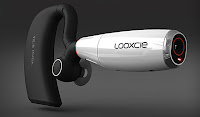Hair lost condition is scientifically known as Alopecia
Some fact about hair
The normal cycle of hair growth lasts for 2 to 3 years and each hair grows approximately 1 centimeter per months
It is normal to shed some hair each day as part of this cycle
However, some people may experience excessive (more than normal) hair loss
Hair loss of this type can affect men, women and children.
Types of Alopecia
Alopecia Areata: Hair loss which occurs in patchy areas on the scalp
Alopecia Totalis: Hair loss present over the entire scalp
Alopecia Universalis: Hair loss which occurs over the entire body, including the scalp, eyebrows etc
Androgenetic Alopecia: Normal genetic hair loss caused by DHT in men and hereditary factors in women
Traction Alopecia: occurs due to traction or excessive rubbing on hair at the base of the scalp
What causes hair loss?
3 or 4 months after an illness or a major surgery may suddenly lose a large amount of hair and its related to the stress of the illness and is temporary
Hormonal problems like if the thyroid gland is overactive or under-active may cause hair fall
Male or female hormones, known as androgens and estrogens, are out of balance can be a reason as well
On pregnancy periods where certain hormones are in high level makes sure hair shed is reduced
And after giving birth, for 3 months the hormones will return to
normal and this is considered as hair lost
Some medicines such as blood thinners (also called anticoagulants), medicines used for gout, high blood pressure or heart problems, vitamin A (if too much is taken), birth control pills and antidepressants can cause hair lost
Certain infections such as fungal infections of the scalp can cause hair loss in children
An underlying disease such as lupus or diabetes has early signs such as hair lost
Certain hairstyles or treatments can cause hair loss
Such as pigtails or cornrows or use tight hair rollers, the pull on the hair can cause traction alopecia
Hot oil hair treatments or chemicals used in permanents (also called "perms") may cause inflammation (swelling) of the hair follicle, which can result in scarring and hair loss
5 Bad Habits That Contribute To Hair Loss
1. Mass Consumption Of Processed Foods
Processed foods often lack the vitamins and minerals you need to maintain healthy hair
2. Drinking Soft Drinks
Most soft drinks are loaded with sugar and read number 3 for the explanation
3. Eating Too Much sugar
Sugar can deplete the body of nutrients and raise adrenal levels
The elevated adrenal levels cause the body to produce more androgen and cause androgenic hair loss
4. Eating Too Much Salt
Table salt has also been linked to hair loss
Sea Salt is also a good alternative
5. Eating Too Much Saturated Fat
Eating foods with saturated fat could cause increased DHT levels in the body
Treatment
- Minoxidil (Rogaine)
A non-prescription medication approved for androgenetic alopecia and alopecia areata
Comes in a liquid or foam that is rubbed into scalp twice a day.
- Finasteride (Propecia)
In a pill form taken on a daily basis
- Corticosteroids
Injections of cortisone into the scalp can be used to treat alopecia areata and repeated on a monthly basis
- Anthralin (Dritho-Scalp)
As a cream or ointment that is applied to the scalp and washed off daily
- Hormonal Modulators
- Oral contraceptives
can be used for hyperandrogenemia
- Surgical Options
Such as follicle transplant, scalp flaps, and alopecia reduction are available
These options are expensive and painful has a risk of infection and scarring
- Hair transplant
A dermatologist or cosmetic surgeon takes tiny plugs of skin, each which contains a few hairs, and implants the plugs into bald sections
The plugs are generally taken from the back or sides of the scalp and may need several transplant sessions
- Scalp Reduction
This process is the decreasing of the area of bald skin on your head
Alternative treatments
Wigs
Can be used permanently or temporarily to cover the hair loss
Quality, and natural looking wigs and hairpieces are available
Natural Way and Supplementation For Hair Loss
Massaging the scalp with stimulating essential oils can sometimes encourage and accelerate growth
- oil like jojoba, cedarwood, lavender, rosemary, thyme and spearmint can be used
A healthy diet containing a good balance of fruits, vegetables, lowfat dairy, lean protein
Healthy fats and such as olive and fish oils is important
Stress reduction
Aloe vera
- anti-inflammatory properties of aloe vera can be used as cream and oral intake can help
Sunlight
- which has UV in it can treat alopecia areata and help hair regrowth
Heat treatment
- Excessive heat treatment may act much like sunburn and the physical damage to the skin will induce inflammation and promote hair growth
Mustard seed/Capsicum poultice
- They are a simple method of applying an irritant to induce dermatitis and promote an inflammatory response
Vitamin supplements/creams
Asprin poultice
- Asprin has an immunomodulatory effect
Dimethylsulfoxide (DMSO)
- is a hydroxyl radical scavenger and antioxidant which has the potential to protect cells from hydroxyl radical mediated radiation damage
Homeopathic
- treatment which the remedy can be taken from the doctor
Herbs
- prescribe by the doctor after determining the type of alopecia
- mixture of the following essential oil applied and massaged on the scalps for seven months may improve hair growth
- 2 drops thymus vulgaris (88-mg)
- 3 drops lavandula angustifolia (108-mg)
- 3 drops rosmarinus officinalis (114-mg)
- 2 drops cedrus atlantica (94-mg)
- jojoba oil 3-ml
- grapeseed oil 20-ml (NOT grapefruit seed oil)
Evening primrose oil borage and black currant oil
- are a source of omega-6 essential fatty acid (EFA)
Hair Lost Prevention
Eat right. Having a lot of fruits, vegetables, calcium, vitamins
and proteins is important
Plenty of exercise and rest
Do not over style or use excessive heat on hair. Towel dry is better then using the blow dryer
Wash the hair only once a day with a protein fortified shampoo and conditioner
Stress
AVOID IT....TOTALLY
Steps to manage it for the hair
- Massaging The Scalp
Great way to relieve stress and stimulate blood flow
Massage the scalp with the tip of fingers and not the fingernails
Do not use the palms because it could potentially damage the hair by massaging roughly
- Deep Breathing
Breath deeply in at a count of 1-4-2. If you breath in for 4 seconds you must hold it for 16 then breath out for 8 seconds. If you breath in at 8 seconds then you must hold it for 32 seconds and breath out for 16 seconds
- Lying With Your Feet Up
Lying down on back with feet propped up against a wall for about 20 minutes is a good way to get blood flowing to the scalp
Grooming and It’s Effects on Hair Loss
Avoid combing or brushing hair with a fine tooth comb
Hair straightens and detangles much easier when hair is wet
- However, the stress on the hair shaft is immense and could damage the hair considerably by continuing to comb the hair while wet
Over brushing or over combing the hair will cause damage to the hair
- It might look nice but in reality brushing the hair excessively could contribute to hair loss
Don’t Shampoo too much
- Too much shampooing could strip the hair of the nutrients that it needs for healthy growth
Choose the right shampoo
- A shampoo with a pH level of 5.5 is ideal
- Don’t buy shampoos that include conditioners. Shampoo and conditioner products are often very weak
Don’t use anti-dandruff shampoos
- They contain formaldehyde, an ingredient that is cancer causing They also contain selenium sulfate, a substance that is known to cause degeneration of the liver. Polyvinyl Pyrrlidone Plastic and cresol are both very toxic and also found in most anti-dandruff shampoos. And most of the time the do not work!!
While Shampooing…
- Always pour the shampoo into hands and then rub it into the scalp. If poured it into the hair at one spot it could gunk up and cause problems. Make sure to massage the shampoo into the hair with finger tips and palms but not with fingernails
(C) jeeknowsthis.blogspot.com/information from www.familydoctor.org/www.hairlosslibrary.com/www.keratin.com/www.hairloss-guide.org/www.hairlosshaven.com

















































